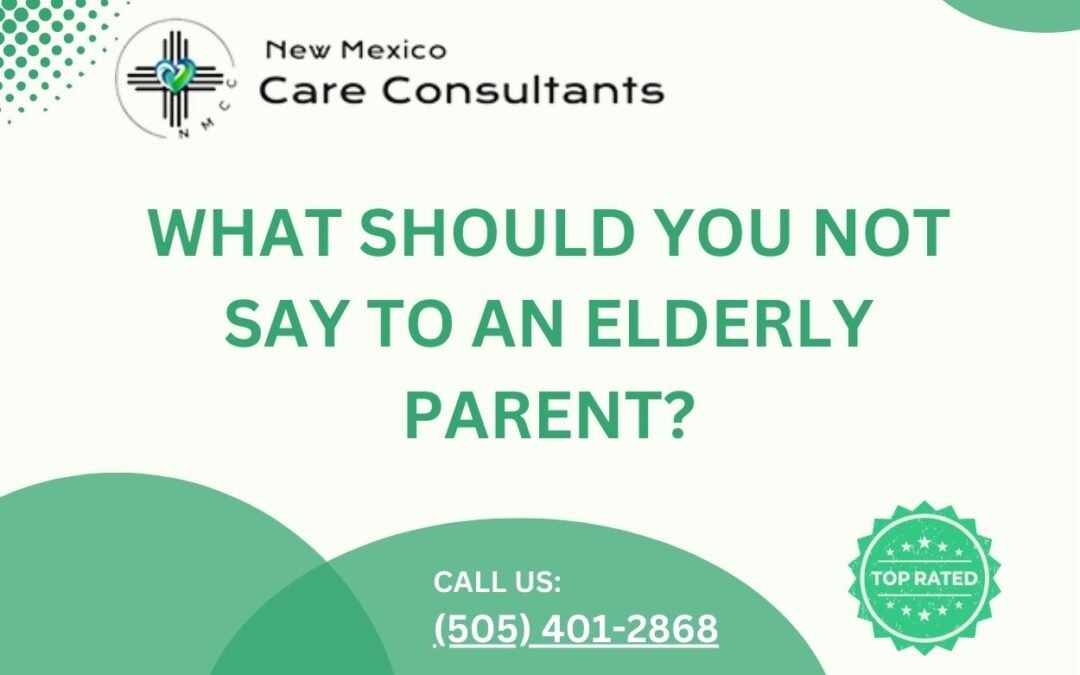As we traverse the intricate tapestry of life, the roles we play often shift and evolve. A significant aspect of this transformation is the evolving dynamic between parents and their adult children. When it comes to communicating with elderly parents, the adage “words have power” takes on an even greater significance. In the twilight years, sensitivity and respect become paramount, and there are certain things that should be approached with care. Let’s delve into the delicate art of communication and explore what you should avoid saying to an elderly parent.
One crucial aspect to keep in mind is the acknowledgment of their wisdom and experience. Age brings with it a wealth of knowledge and a lifetime of stories. Therefore, refrain from undermining their perspective by dismissing their opinions or belittling their experiences. Instead, foster an environment where their insights are valued, creating a space for enriching conversations.
Expressions such as “You don’t understand” or “You’re too old-fashioned” can be hurtful and counterproductive. Aging parents may feel a sense of disconnect when faced with such comments. It’s essential to remember that their perspectives are shaped by a different era, and their life experiences have molded them into the individuals they are today.
Avoiding insensitive remarks about physical appearance is another crucial aspect of respectful communication. Comments like “You look tired” or “You’ve gained weight” can be emotionally distressing. Aging comes with its own set of challenges, and focusing on appearance can undermine their self-esteem. Instead, express appreciation for their resilience and the beauty that transcends physical attributes.
Conversations about end-of-life matters should be approached with extreme sensitivity. Avoid making remarks like “Have you prepared your will?” or “What are your funeral plans?” unless the topic is raised by your parent. These conversations can be emotionally taxing, and it’s essential to approach them with empathy and consideration.
In Albuquerque, NM, where the community values the elderly, it’s pertinent to be aware of the available elder care programs. Providing emotional support and helping your parents access these resources can make a significant difference. Organizations such as Elder Care Programs in Albuquerque, NM offer a range of services, from healthcare assistance to community engagement programs. Be sure to explore these options together, fostering a sense of community and connection for your elderly parents.
Financial discussions should be approached with tact, as elderly parents may be sensitive about their financial independence. Phrases like “Do you need help managing your money?” or “Are you sure you can afford that?” can be construed as intrusive. Instead, open a dialogue about financial planning and offer assistance without assuming control.
Furthermore, refrain from treating your elderly parents as if they are burdensome. Comments like “You’re too much to handle” or “I don’t have time for this” can be emotionally devastating. It’s crucial to remember that your parents have played a pivotal role in shaping your life, and now it’s your turn to reciprocate with compassion and understanding.
In conclusion, nurturing relationships with elderly parents involves a delicate dance of words. Be mindful of the impact your words can have on their emotional well-being. By choosing your expressions with care and engaging in open, respectful communication, you can strengthen the bond with your elderly parents and create an atmosphere of love, support, and understanding. And in Albuquerque, NM, where the community thrives on inclusivity, exploring elder care programs together can be a positive step towards ensuring their well-being and happiness in their golden years.

